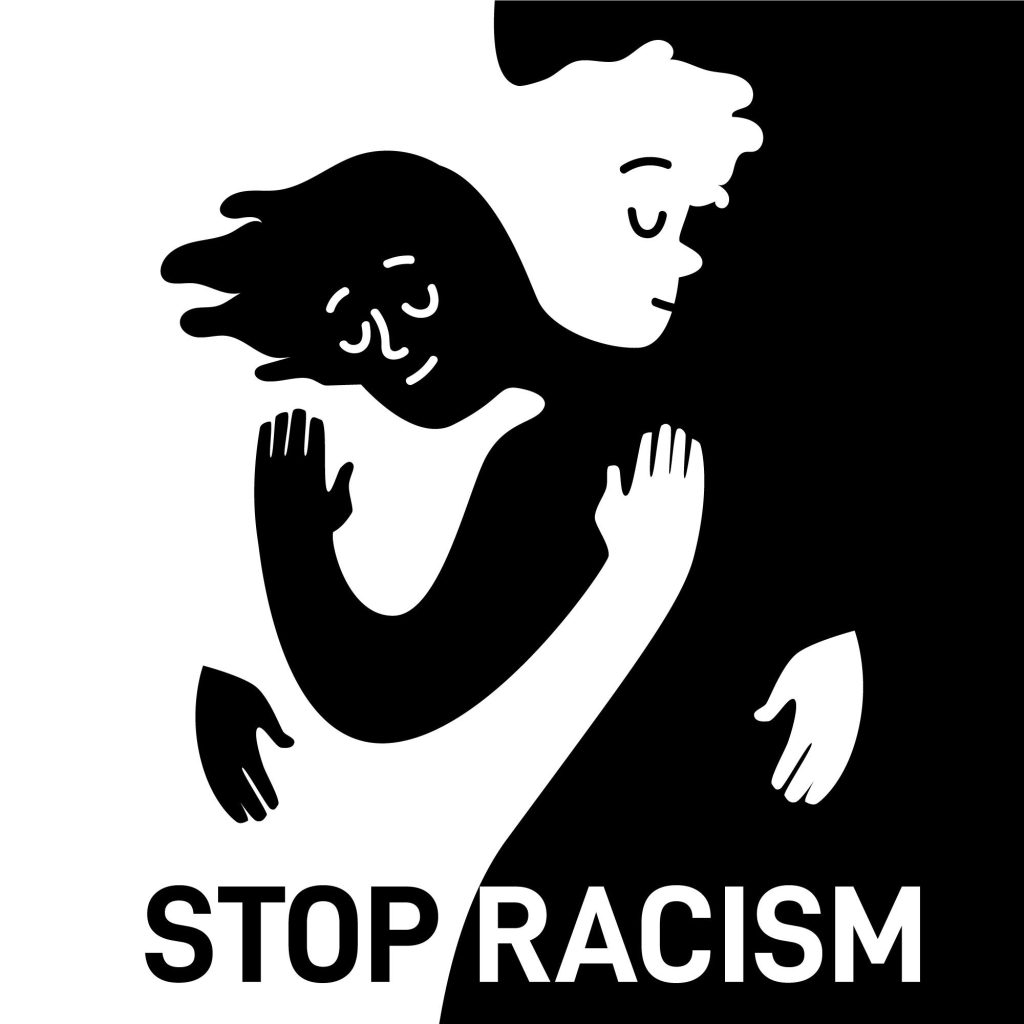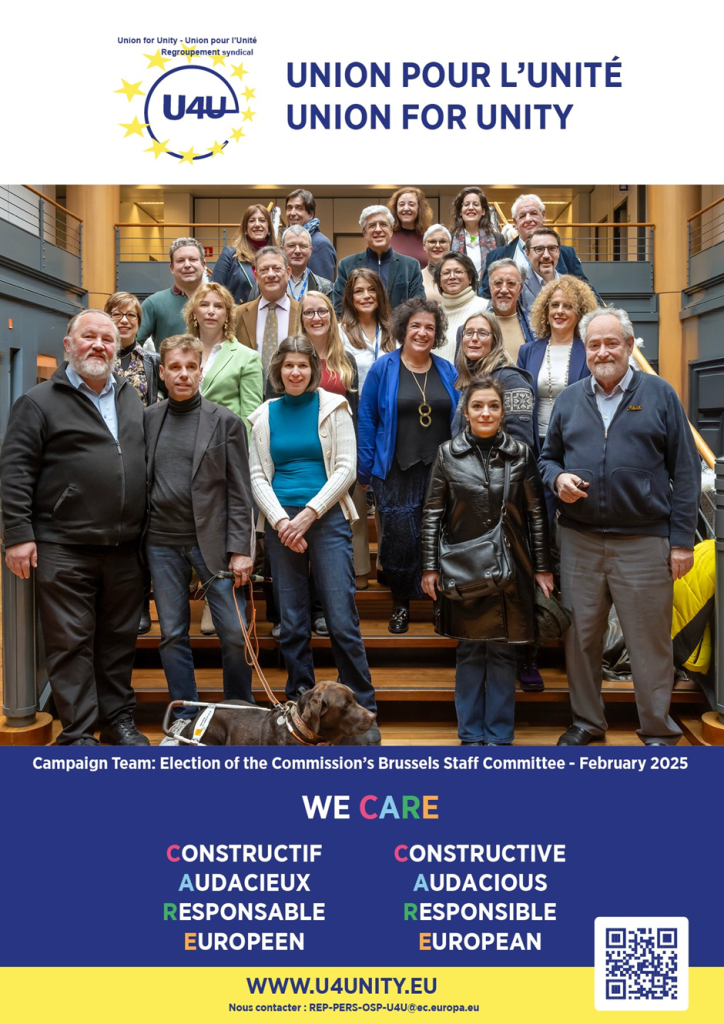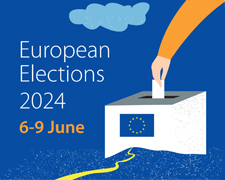Latest news: shocking posters on the walls of the European quarter

“When you hear bad things said about the Jews, prick up your ears, they’re talking about you.” (Frantz Fanon, Black Skin, White Masks).
Several of our colleagues informed us with justifiable anger at the end of last week of the presence in various locations in the European Neighbourhood, particularly on the windows of several buildings housing the European Institutions, of posters depicting close-ups of the faces of prominent figures belonging to the Jewish community, accompanied by the words “he/she lobbies for genocide.”
Such posters, shockingly imitating the style of the “wanted” posters of 1960s Western films, are nothing less than public invitations to hatred and violence.
Our union, representing civil servants in the European institutions, wishes to express its strong condemnation of such actions, which amount to nothing less than exposing, in an already tense context, clearly identifiable individuals to public vindictiveness.
Beyond the direct threat to the safety of the individuals named, these posters also contribute to the development of a general climate of tension and hostility toward the Jewish community. Finally, to the extent that they defy all norms regarding respect for the human person, their safety, and their image, they also undermine the very foundations of democracy.
We therefore ask our institutions to instruct the teams in the relevant departments to ensure that, should such posters appear again on or near buildings occupied by the institutions, the posters are immediately removed and a formal complaint filed.
Action for Ukrainian refugees in Brussels
Major successes and developments….
With the support of the Food Bank

The initiative continues but unfortunately, the need is still there. Thanks to the OIB, we have been provided with new premises, enabling us to continue distributing basic food aid to those who have fled Ukraine due to the ongoing conflict. We’re making progress!
The aim is to provide families with emergency aid for the first few months, and sometimes for longer, to help them get by.
For almost three years, we have distributed countless meals, and your generosity has enabled us to provide a sense of normality to individuals whose lives have been disrupted by war.

In practical terms, from now on :
1. The new warehouse is located at 77 Rue des Eburons, 1000 Brussels;
2. Refrigerators and storage facilities are still on loan from the OIB;
3. Toy distributions will be organised if possible;
4. Language courses will continue, subject to availability;
5. The Food Bank continues to support the initiative and is actively involved.
All of this is achieved with €0 running costs
This is only possible thanks to the voluntary work of colleagues, the support of the administration and staff representatives from all sides, as well as the support of the Association Femmes d’Europe and the Food Bank.
Last but not least, we would like to thank the Office for Infrastructure and Logistics in Brussels (OIB) once again for providing storage, logistics and furniture.
To donate directly to the cause, please use the following account :
Action Ukraine UE – N° BE47 3632 5780 0980 with the reference “Don Ukraine “.
To donate in kind, please come to the warehouse at rue des Éburons, 77:
Tuesday from 10am to 2pm / Wednesday from 1pm to 5pm
Saturday 10am to 1pm / Thursday 2pm to 6pm

Conflict in the Middle East: We must not remain silent
Why we must take a stand

We, as employees of the European civil service, are concerned about the ongoing conflict in the Middle East and the atrocities that have been taking place there since October 7, 2023. These events cannot leave us indifferent.
Indeed, our profession, our mission, is the construction of Europe. A project, values that embody the overcoming of hatred among the peoples of the European continent, marked by numerous wars, acts of pure barbarism, and a genocide that remains vivid in our collective memory.
The European Union is the result and symbol of an effort to overcome past wars and hatreds by jointly building a democratic space of cooperation and solidarity. This space was founded not on the concealment of the past but on the conscious and self-critical recognition of our history, without obscuring its causes and responsibilities.
This European model serves as our compass and guides us. It is the only one that strongly promotes our values and founding principles to pave the way towards peace and harmony.
This is why we, members of the European civil service, in the name of our history and European identity, believe that our institutions must work together to:
- Secure the immediate release of all hostages;
- Ensure respect for the laws of war, international humanitarian law, and fundamental rights;
- Facilitate the urgent delivery of humanitarian aid to the civilians of Gaza;
- Achieve an immediate and permanent ceasefire, adhered to by all parties, as a first step towards negotiating a lasting resolution to the conflict.
We therefore call on the Presidents and leaders of the European Institutions to act accordingly with all their might and the means they deem useful and necessary.
It is essential to find a political solution that can outline a future for the Palestinian people, without which there can be no future, security, or peace for the Israeli people.
It is our responsibility to promote this demand for humanity and hope.

8th March: International Day for Women’s Rights
Dear colleagues,

On the eve of 8th March, we could have written a nice compliment about the importance of women for society or sent you some flowers by email.
However, 8th March is not, as it is sometimes said “Women’s Day”, but the International Day for Women’s Rights.
It is not only about commemorating the important victories of the past and paying tribute to the pioneers of equality, but also about committing today and every day to complete and true equality of rights.
At a time when gender-based violence remains a real scourge, whether in the family, on the street or at work, where the majority of single parents are single mothers, where the phenomenon of the “double work day” and the accumulation of household chores and professional responsibilities is still much more difficult for women, where certain hard-won rights are being challenged by increasingly aggressive conservative movements, we wish to address you a double invitation instead.
An invitation, first of all, for Saturday, to take part in the demonstrations that will be organized in the cities where you are.
An invitation, also, to act every day, in the family, at work or in the street in favour of respect and equality.
Because it also depends on you.
Annabelle Menendez Vallina Georges Vlandas Yves Caelen
07/03/2025
2025: Election of the Brussels Staff Committee
Elections will be held next February to elect our next representatives to the Brussels Staff Committee. The main role of the Staff Committee is to represent the interests of the staff towards the institution and to contribute to the smooth running of the services. The U4U Campaign Team is ready to take on this role and protect your interests. We have also received the necessary number of nominations to propose a full list. You will be informed in January 2025.

Best wishes for 2025!

If Europe is to continue to move forward, our unity and our diversity are more necessary than ever. Let’s face the challenges of 2025 together. U4U stands with you and wishes you all the best.
Civic action to get involved

In 2024, there were two opportunities to exercise European citizenship in Belgium. The first was the election to the European Parliament, for which voters could choose to vote in their national constituency or in their constituency of residence, which for most of us was Belgium. The second was to be able to vote in the Belgian municipal elections, in our commune of residence, even if we don’t have Belgian citizenship.
U4U carried out a strictly non-partisan campaign to raise awareness of these rights and to make it easier to register to vote in Belgium. This action was carried out in partnership with other actors (1BRU1VOTE, Graspe, Brussels Commissioner for Europe, Restless Brussels and Stand Up for Europe, ZN) and, for the municipal elections, under the patronage of the Brussels-Capital Region).
For the European Parliament elections, U4U ran a campaign to explain the rights and procedures for registering to vote. With the extension of voting rights to 16-year-olds, this was the perfect opportunity for our young people to exercise their rights as European citizens for the first time.
For the municipal elections, the same information campaign was complemented by local actions (markets, in front of public buildings, etc.), as the possibility to vote was extended to non-EU foreigners.
It is difficult to measure the impact of these two actions, but we can say that more than 50,000 non-Belgians registered to vote in Brussels. We can only claim a small part of this success…
There’s still time to register to vote in the next elections! Did you know that foreigners represent ONE THIRD of the potential voters in the Brussels-Capital Region? That’s a huge number, especially when local councillors can be elected by a few hundred votes. Your vote is important and can make a real difference!
We will continue our action with our partners, this time to demand the right to vote in regional elections. Let’s activate our European citizenship with U4U!
Elections 2024: being a candidate or campaigning?

2024 will be a big election year in the European Union and around the world. Several media outlets have reported that more than half the world will go to the polls this year.
In Brussels alone, elections will be held this year at European, federal, regional (on 9 June) and local (on 13 October) level.
In addition to the European elections in June, Finland recently elected its president, while Portugal, Malta, Slovakia, Lithuania, Croatia, Austria, Romania and Hungary (indirectly in this case) will elect either their president or their parliament.
In Ireland, a referendum will also be held on 8 March to remove from the Constitution references to the “role of women in the home” and the fact that the family must be “based on marriage”.
Needless to say, there is a lot at stake in these elections. It is therefore to be hoped that a large number of citizens, including EU staff, will become actively and consciously involved in defending not only the various electoral programmes but also the fundamental values of the European Union: ”The Union is founded on the values of respect for human dignity, freedom, democracy, equality, the rule of law and respect for human rights, including the rights of persons belonging to minorities. These values are common to the Member States in a society characterised by pluralism, non-discrimination, tolerance, justice, solidarity and equality between men and women.” (Article 2 of the Treaty on European Union)
But what are the rules if you decide to stand for election or simply to campaign for your favourite candidate?
First of all, if you decide to stand for election, whatever the post you are seeking (even if it is to be placed at the bottom of an electoral list in a small municipality), you should note that, under Article 15 of the Staff Regulations, you are obliged to inform the Appointing Authority (AIPN) of your intention to stand for election (this is not a request for authorisation, but a simple but nonetheless essential obligation to inform).
On the basis of this information, the Appointing Authority will inform you of its decision as to whether you may continue to perform your duties. Under the Staff Regulations, the Appointing Authority may decide either to ask you to apply for leave on personal grounds (CCP), or to ask you to take annual leave, or to authorise you to continue your duties on a part-time basis, or to authorise you to continue them on a full-time basis.
The Appointing Authority’s decision will depend on a number of factors, including the interests of the service, the importance of the post for which you are applying, the amount of work involved and the remuneration that would be involved.
It goes without saying that similar obligations will apply to you for the duration of your mandate if you are elected or if you subsequently accept an indirectly appointed or elected position (e.g. member of an executive or, in some Member States, a social council).
In addition to the declaration obligation mentioned above, it is also important to remember that you must always make a clear distinction between your capacity as a candidate and your duties in the institution. While it goes without saying that your position as a “European official” may appear on electoral lists in the same way as any other, it would not be acceptable for you to take advantage of it or to use it during an election campaign. You are, of course, still bound by your duty of discretion and are therefore not authorised to disclose facts or information which are not in the public domain, and which have come to your knowledge in the course of your duties.
Without standing for election yourself, you may decide to campaign on behalf of one or other party or candidate. This may take various forms: poster campaigns, door-to-door canvassing, participation in public meetings, sending individual letters to your network of friends and acquaintances, posting or reposting messages or video documents on social networking sites, etc.
Again, the rule of freedom of expression prevails. You have the right to take part in the debate and to defend your beliefs. However, there are a number of rules that limit this freedom. Firstly, as is the case for candidates, you may not use your position as a European Union official in your campaign: you must not compromise the public’s perception of the impartiality of the European civil service. Nor may you divulge or use information that has come to your knowledge in the course of your duties.
Finally, even in your private life, or even in your life as a committed citizen, you must refrain from behaviour incompatible with the dignity of your office: in an election campaign, where tempers can flare, the use of insults, threats or other similar behaviour is obviously unacceptable.
To all our colleagues involved in election campaigns for democratic parties that respect the values enshrined in Article 2 of the Treaty on European Union, we wish you a successful campaign.
Reminder: This article gives us the opportunity to remind you that membership of U4U is incompatible, in particular, with membership of a political movement or association whose express object or activity is the negation of the values and rights listed in Article 2 of the Treaty on European Union (see Article 8 of the AISBL “Union 4 Unity” Statutes: Obligations of members).
Activate your rights as a citizen!

In the previous issue, we informed you of the launch of a project to raise awareness of our rights as citizens
Here’s a progress report. First of all, we have established contacts with several citizens’ associations with a view to cooperating and establishing synergies. Each association has its own angle of interest and target audience, but the message is the same: get on the electoral roll and vote! We’re going to broaden and deepen these contacts.
At the same time, we produced a trilingual poster on the European elections, which was also sent to the European Schools and Parents’ Associations.
We also sent all the staff of the Institutions a newsletter on the two 2024 elections: European and local. We are preparing an information conference for the staff of the institutions. Soon, at least two information websites will be up and running. We are continuing to work on this project.
Activate your civic rights!

In 2024, the European elections will be held on 9 June and the Belgian municipal elections on 13 October. The law grants the right to vote to foreigners residing in Belgium for the latter and to EU citizens for the former.
Unfortunately, too few of those eligible to vote have chosen to exercise their right as citizens.
This is why U4U is launching an information campaign on the subject.
It is important to participate in local political life as a voter. When U4U lobbies local authorities, for example for European schools, it is not uncommon to be told: “You know, I represent my constituents; and Europeans don’t vote”. And yet, if we were to exercise our rights, together with our spouses and young adults, we would represent a considerable mass, more than a hundred thousand voters. Then our vote must count.
U4U will keep you informed of its actions in this field.
Best wishes for 2024
